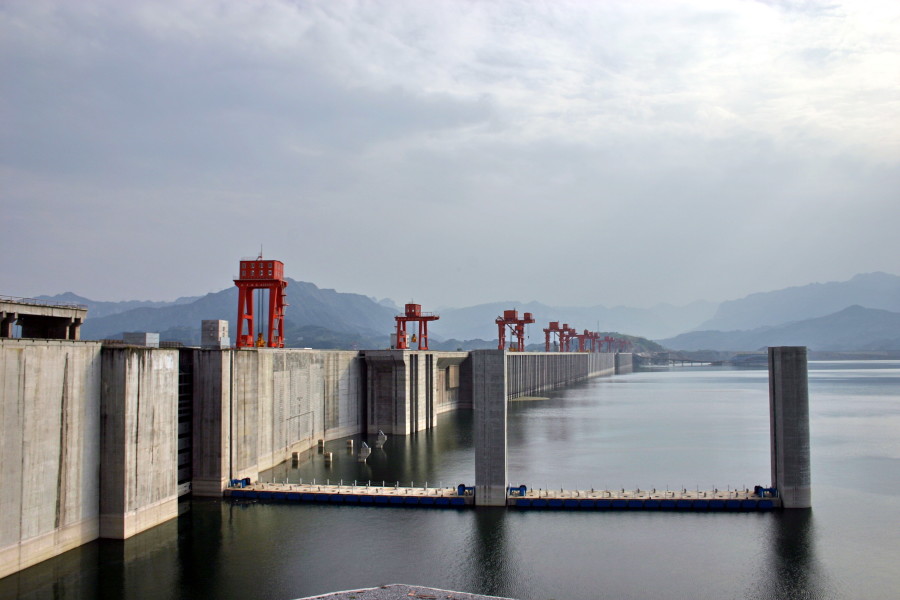The Great Dam of China
Two kilometers wide, 185 meters high, and cast from 30 million cubic meters of concrete. It may sound like the construction statistics for the Great Wall of China, but it isn’t. This gargantuan Chinese structure goes by the name of the Three Gorges Dam.
Evidently, this dam has many issues. It raises questions about polluting China’s already polluted water pathways. Authorities backing the project have brushed aside the possibilities of flooding or sedimentation. This dam can possibly become one of the “world’s largest water conservancy and hydroelectric power project[s],” according to a 1992 comment by Chinese Premier Li Pen. He said this when the dam’s construction was first approved, but has it been worth it?
Criticizing the Chinese authorities’ decision to construct the dam is easy. As BBC columnist Philip Ball said: “…what about the effects on local ecology, or the loss of sites of priceless national heritage? What about the dam’s vulnerability to earthquakes?” The area chosen for the Three Gorges reservoir lake covers 1000 sq. kilometers, and housed over 1.5 million people. The sheer magnitude of the displacement, yet again, raises questions about the government’s ability to relocate these people as fairly as possible.
However, the reasons behind building this dam are infinitely more complex than they may look. The project is not about China’s desire to highlight its “political, economic and technological might,” as Philip Ball astutely points out.
China’s Three Gorges Dam contains eight times the concrete the Hoover Dam does. The story behind this concrete giant begins in the third millenium BCE, according to historical and mythological sources.The Great Flood was a major event that continued for at least two generations, and resulted in great sorrow and struggle for the Chinese people. Emperors attempted and failed to control the floods until a minister appointed by the emperors Yao and Shun – Dao Yu – attempted to drain the flood rather than contain it. Ever since, China’s attitude towards controlling waterways has involved great feats of engineering: “mountains [are] moved, populations shifted and geography reordered to seize control,” according to Philip Ball.
The power struggle between floods and Chinese Emperors reflects this turgid past. Emperors who could not control floods and protect their people risked losing their right to rule, and this legacy has not been ignored by by this century’s Chinese leaders. Mao Zedong, whose supporters credit him with driving imperialism out of China, reportedly swam in the Yangtze river in the summer of 1966. According to TIME, “ the swim was a call to China’s younger generation to dive into a political struggle. If the aging Chairman could conquer the mighty Yangtze,” then the Chinese youth could conquer the counterrevolutionaries. Mao Zedong even wrote poetry that accompanied this act:
Walls of stone will stand upstream to the west
To hold back Wushan’s clouds and rain
‘Til a smooth lake rises in the narrow gorges.
With such a turbulent and swelling history, brimming with the significance of water control, China’s decision to accomplish this hydraulic feat makes more sense.
The hydroelectricity that China could gain from this project would significantly reduce its carbon emissions and increase its usage of renewable energy, both of which are laudable goals that the country aims to meet by 2020. The Three Gorges Dam has 18.2 GW of power-generation capacity, which is ten times the capacity of the Chinese nuclear power station in Guangdong.
As Philip Ball says, “Now more than ever, managing the waterways has become a bellwether of political legitimacy.” The Three Gorges Dam can be portrayed as a monster that destroys the World Heritage sites it runs through, or a benevolent structure that provides a great amount of nuclear energy. It is a double edged sword with unforeseeable consequences. What will it become?
Sources: BBC, TIME, Wikipedia, The Encyclopaedia of Earth

This is Anoushka’s second and final year in The Talon. She still does not know how to write a biography and would probably ‘google’ it if she knew...








